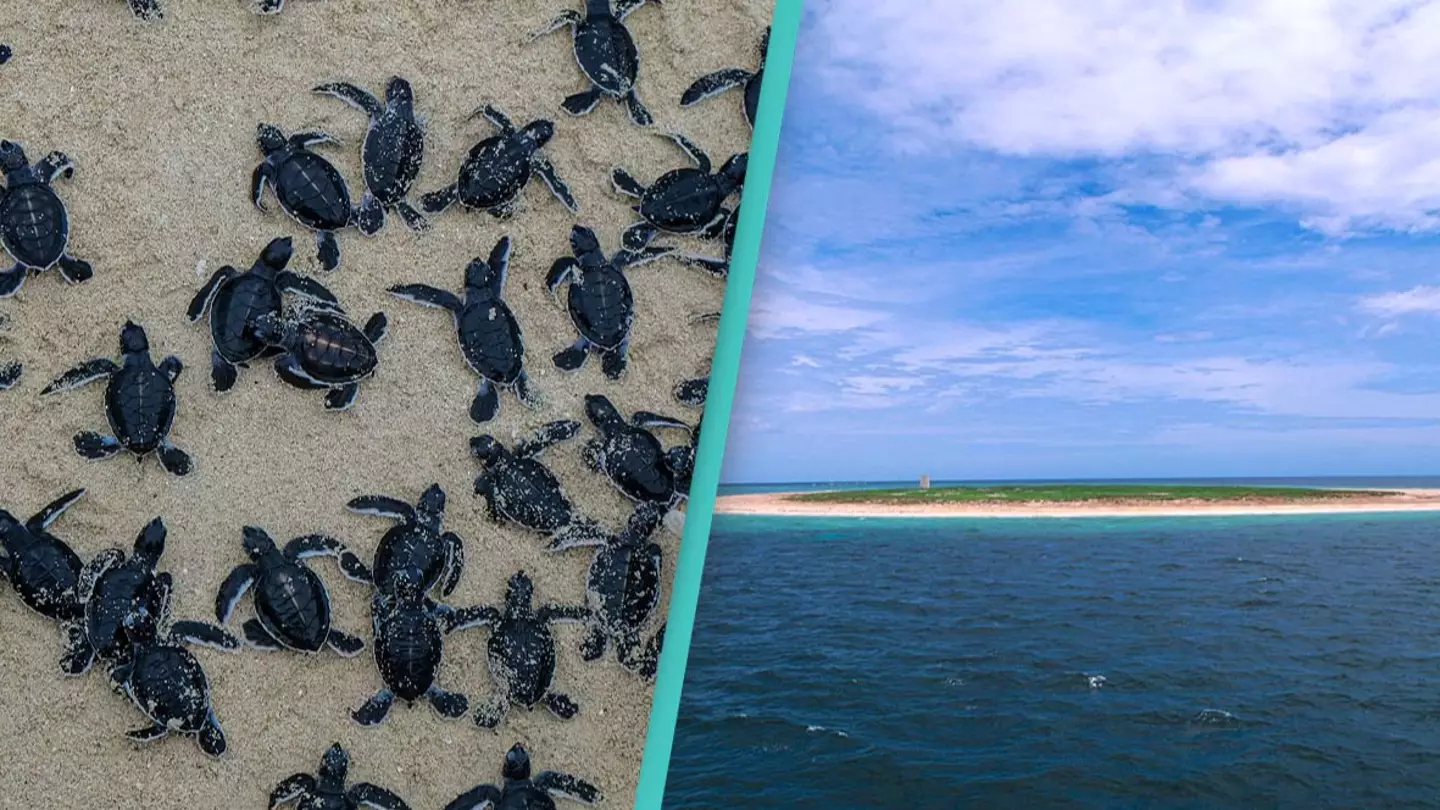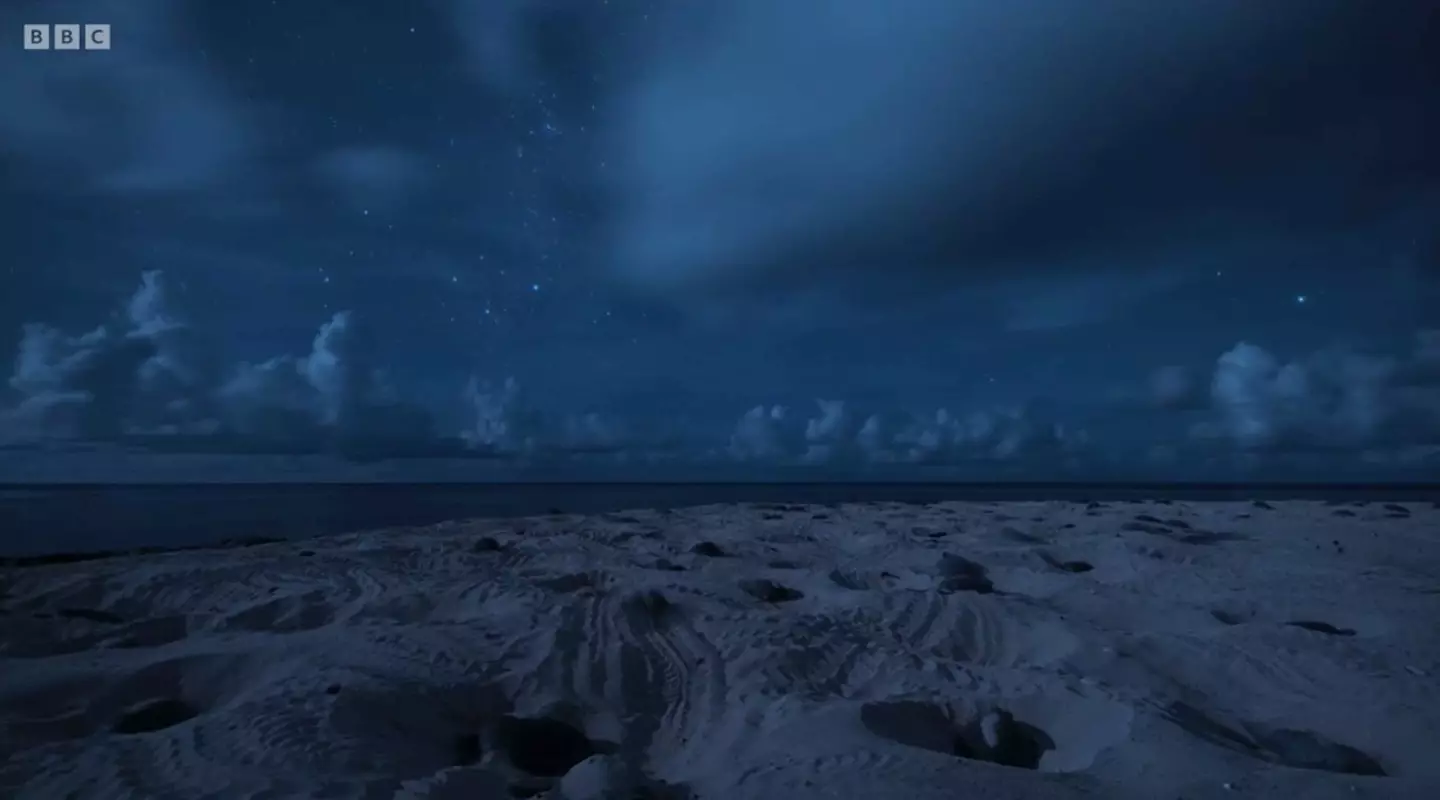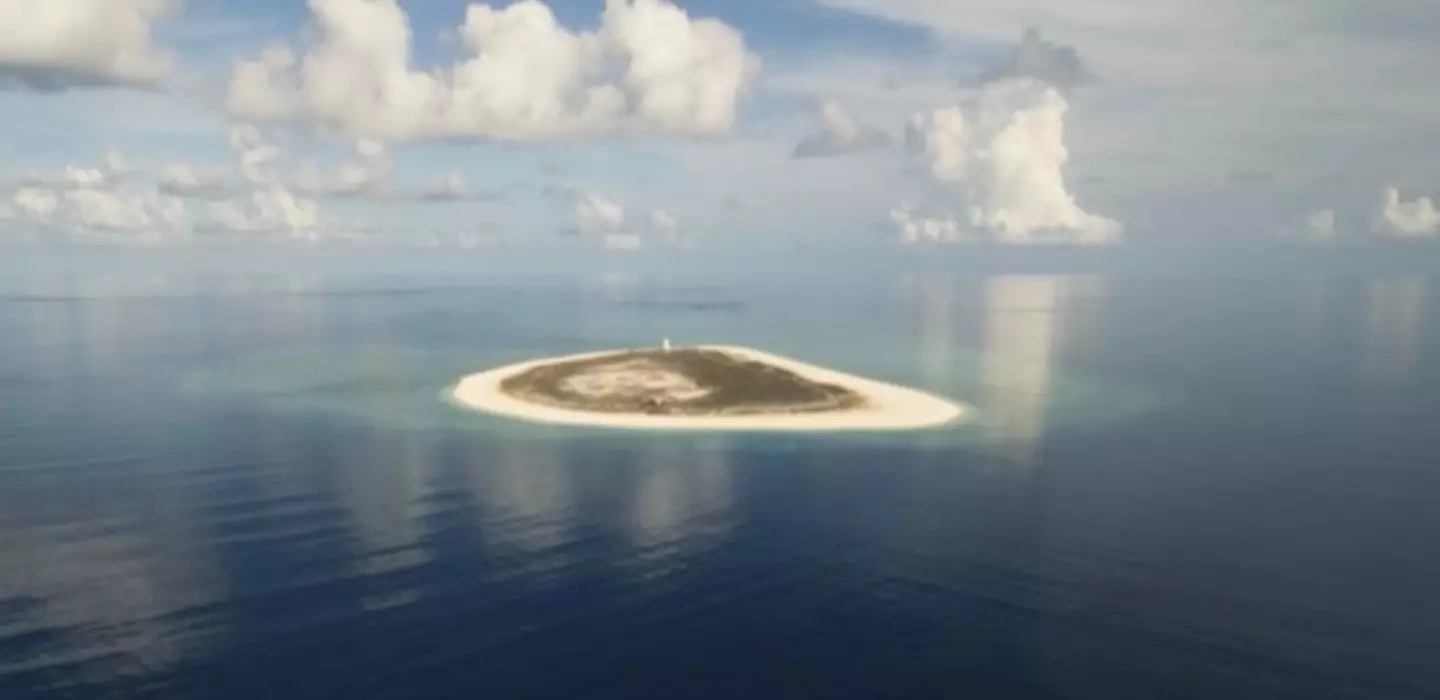
Sir David Attenborough has said one of the planets ‘most important breeding grounds’ is under threat.
If sea levels continue to rise as predicted, the world's largest nesting site for green turtles will be underwater within 30 years.
In a new BBC Planet Earth documentary, Sir David Attenborough once again explores the ocean, and one episode focuses on Raine Island in Australia, the world's largest nesting site for the green turtle.
Advert
In the episode, Attenborough narrates: “On a few special nights each year, as many as 20,000 females come ashore here.
“Their instinct to nest is strong and many haul themselves far inland in search of nesting space.
“In a single night, they may lay as many as two million eggs.”
However, scientists are not feeling hopeful about the future of Raine Island.
Only 10 percent of the eggs laid are producing turtles, compared to 90 percent in other areas around the world.

Researchers have been interested in looking into how seawater affects the turtle eggs, and why so few of them are becoming turtles in this corner of the globe.
Raine Island is regularly subject to storms and downpours, and this could be the reason why so few eggs hatch.
Scientists working on the project found eggs that have been underwater for up to six hours are less likely to survive, as they are deprived of oxygen.
And things will only get worse.
Attenborough said: “If sea levels rise as predicted within the next 30 years, Raine Island will disappear beneath the waves.”

Green turtles are already listed as endangered animals, they are one of seven other species of turtles, including the loggerhead, the leatherback, the hawksbill, the Kemp’s ridley, the Olive ridley and the flatback.
Another scientist who spoke to the Guardian, is Dr David Pike, who echoed what Attenborough said, saying: “A big concern worldwide will be trying to predict how sea level rises will impact sea turtle populations.
“It will take 20 to 30 years for us to realise that we don’t have many adult turtles anymore, because the current hatchlings aren’t making it.”
Attenborough finished the documentary by saying: “Life is remarkably resilient, and adapts to new challenges, but there is a limit on how fast it can do so.”
The turtles have been coming to nest on the island for at least a thousand years, but this warning from one of the most prominent naturalists is one that we should be taking seriously.
Topics: David Attenborough, Animals, BBC, Documentaries
